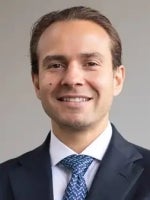In modern litigation, the strength of your expert witness can be a determining factor in the trajectory of your case. An expert’s credibility, background, and litigation history often come under intense scrutiny—both in and out of court. For attorneys, the failure to thoroughly vet an expert witness, whether retained or opposing, carries serious professional and strategic risks.
Expert Witnesses Under the Microscope
Expert testimony serves as a cornerstone in complex litigation—shaping liability, influencing damages, and framing technical issues for judges and juries alike. But with that influence comes a heightened burden: the need to ensure that an expert’s qualifications and history can withstand rigorous cross-examination and judicial scrutiny.
A growing number of cases have demonstrated how overlooked details—such as undisclosed board sanctions, prior litigation conduct, or inconsistent statements—can be leveraged by opposing counsel to impeach an expert’s credibility. Even experienced attorneys can find themselves blindsided if their expert’s record hasn’t been fully vetted. Worse, if the lapse is egregious enough, it could expose the firm to malpractice claims.
Common Pitfalls in the Vetting Process
Attorneys frequently rely on publicly available sources such as state licensing boards or disciplinary records to evaluate expert witnesses. While these are important starting points, they can be incomplete or difficult to access. Sanctions may not be updated in real-time, and some jurisdictions maintain opaque or fragmented reporting systems.
Further, expert witnesses often have extensive litigation histories, academic publications, or industry affiliations that may contain contradictory or problematic material. An expert who testifies inconsistently across cases, for example, opens the door to impeachment. Similarly, undisclosed financial relationships or conflicts of interest can call an expert’s neutrality into question.
When Expert Vetting Fails: High-Stakes Lessons from Recent Litigation
Recent high-profile cases underscore the critical importance of thoroughly vetting expert witnesses, as lapses in credibility have led to significant legal repercussions.
In the Paraquat Products Liability Litigation, (MDL No. 3004, Case No. 3:21-md-3004-NJR), thousands of plaintiffs allege that exposure to the herbicide Paraquat caused Parkinson’s disease. The plaintiffs' sole general causation expert, a biostatistics professor, was excluded by both federal and state courts due to concerns over his methodology. This exclusion has significantly undermined the plaintiffs' position, highlighting how even a single expert's shortcomings can jeopardize large-scale litigation.
Meanwhile, the Karen Read trial, (Commonwealth v. Karen Read, Norfolk Superior Court, Massachusetts) has received national attention. Read is accused of murdering her boyfriend, Boston police officer John O'Keefe. The case has been marked by intense scrutiny over expert testimony and evidence handling. Notably, the defense's use of two expert witnesses raised serious ethical and procedural concerns, leading a Massachusetts judge to suspend the retrial after discovering undisclosed payments exceeding $23,000 to experts from ARCCA LLC. The judge expressed "grave concern" over these payments and their potential to influence testimony, illustrating how non-transparent expert arrangements can threaten the integrity of a defense strategy.
These cases serve as stark reminders that expert witness credibility hinges not only on academic qualifications but also on transparency, methodology, and litigation history—all of which demand thorough and ongoing vetting.
Vetting the Opposition: A Strategic Imperative
While it’s standard practice to assess your own expert’s background, applying the same level of scrutiny to opposing experts can create valuable strategic advantages. Identifying prior credibility issues, financial incentives, or testimony that contradicts their current opinions can equip attorneys with powerful tools for cross-examination or motion practice.
This kind of intelligence gathering often goes beyond traditional research. Attorneys increasingly rely on technology-assisted review and monitoring tools that provide ongoing insight into an expert’s involvement in litigation, public commentary, and professional conduct.
How Legal Tech and AI Are Transforming Expert Witness Due Diligence
Advancements in legal technology are fundamentally reshaping how attorneys approach expert witness vetting. AI-powered tools can now aggregate and analyze vast amounts of data—spanning court filings, publications, deposition transcripts, disciplinary records, media coverage, and online content—that would take an individual attorney dozens of hours to review manually, if accessible at all.
By synthesizing this information, these technologies help attorneys identify potential red flags in both retained and opposing experts, such as inconsistent testimony, undisclosed affiliations, financial conflicts, or patterns of bias. This kind of analysis allows for a more complete and proactive assessment of an expert’s litigation history and professional conduct.
Whether leveraging sophisticated platforms or conducting manual investigations, attorneys must treat expert vetting as a critical component of case strategy. A well-documented, thoroughly scrutinized expert can offer a strategic advantage—not only at trial, but during early case evaluation, expert selection, and pre-trial motion practice.
Checklist: Key Areas to Evaluate When Vetting Expert Witnesses
To ensure credibility and minimize risk, attorneys should review the following:
- Litigation History
Search past testimony and involvement in prior cases for inconsistencies, frequency of retention, or potential bias.
- Publications & Academic Work
Examine peer-reviewed articles, books, or public statements for positions that may contradict current opinions.
- Deposition & Trial Transcripts
Identify patterns in how the expert performs under examination or how their testimony has been challenged.
- Licensing & Disciplinary Records
Confirm active licensure and check for sanctions or disciplinary actions through relevant state or professional boards.
- Professional Affiliations
Investigate organizational memberships or consulting roles that may pose conflicts of interest.
- Media Coverage & Online Presence
Review interviews, social media activity, and public commentary for any material that could affect credibility.
- Financial Relationships
Disclose and evaluate payments received from parties with vested interests in the litigation.
A Heightened Standard of Care
In an era where expert testimony is increasingly under attack, courts and clients alike expect attorneys to meet a higher standard when it comes to expert witness due diligence. The ability to identify red flags—before opposing counsel does—can mean the difference between advancing your case and defending against an avoidable credibility crisis.
By leveraging the latest legal tech tools, attorneys are positioned to meet that heightened standard. These platforms do not replace legal judgment—but they elevate the investigative foundation on which sound decisions are made.
In high-stakes litigation, there is simply no substitute for knowing exactly who your expert is—and who the other side’s expert claims to be.




 />i
/>i
